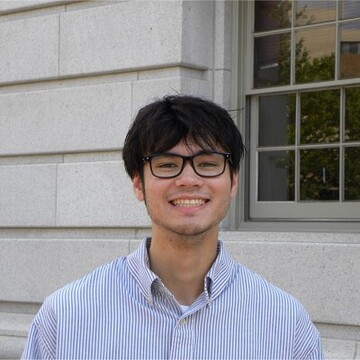Monday afternoon, University of Wisconsin Chancellor Jennifer Mnookin sat before members of faculty, staff and the student body for a Senate Faculty meeting. The meeting came on the eighth day of a pro-Palestine encampment demonstration on campus.
A group held a rally at the encampment on Library Mall and marched up Bascom Hill ahead of the meeting. Around 80 members of faculty and staff filed into the meeting room. At the meeting, they pressed Mnookin — advocating on behalf of students, and the greater campus community.
Here are four key takeaways from today’s meeting.
Mnookin will not grant legal exception for encampment
Under Chapter 18 of the Wisconsin Administrative Code, tents and camping are not allowed on university property. Mnookin has the ability to make the encampment on Library Mall lawful, but said she will not do so because of the precedent this would set for future encampment demonstrations.
“If I granted an exception for this encampment, I would need to grant an exception for any group that wishes to set up such an encampment, regardless of the cause,” Mnookin said.
Mnookin pledged to ensure safety and stability for the encampment demonstration to continue, but said a collection of risks drove university leadership to authorize the removal of tents from Library Mall May 1.
She pointed to a voicemail she and other administrators received last week from an organization warning they would set up tents as part of an anti-Black Lives Matter protest.
Mnookin responds to protesters’ demands
Since the demonstration began, UW administrators have met with students organizing the protest to discuss demands made April 29.
Among the demands is the disclosure of the Wisconsin Foundation and Alumni Association’s investments. Mnookin explained challenges in meeting this demand because endowment investments are handled by WFAA, a separate, independent non-profit, Mnookin said.
“The simple reality is that here at UW, I do not control how our endowment is managed and invested,” Mnookin said. “These decisions are simply not at all under my control.”
Further, protesters are demanding the university cut ties with Israeli institutions, including academic partnerships. This would be both a violation of state law and an affront to academic freedom, Mnookin said.
Faculty denounce use of law enforcement, put pressure on administrators
Members of UW faculty and staff pressed Mnookin and other administrators to create a safe campus environment for students. Many denounced the use of police force May 1.
Leigh Senderowicz, a faculty senator representing the UW Department of Gender and Women’s Studies, asked Mnookin if she had seen the images of faculty being carried away from the encampment by police. Senderowicz, who is in her second year at UW, said she does not want to work at a university that uses violence against its community members.
“I’d like to come to work everyday knowing my students are going to be safe, my colleagues are going to be safe,” Senderowicz said.
Echoing this sentiment, faculty senator representing the Department of Geography Keith Woodward, said he is “outraged” by the use of law enforcement to remove the encampment. Woodward read a set of demands made by the Department of Geography, which included the university issuing a public apology for these events.
Attendees emphasize need for shared governance
Messages emphasizing the importance of shared governance underscored the meeting. Faculty members said the voices of students are important, and urged administrators to include them in discussions. Shared governance at UW ensures decisions regarding the university’s actions involve representation from students, academic staff, university staff, and faculty through the use of governance bodies. The shared governance body for students is the Associated Students of Madison, which saw new lows for student voter participation this spring.
UW professor of community and environmental sociology Samer Alatout’s message of the importance of shared governance was especially clear. Alatout, who has advocated on behalf of students over the past week, said administrators have taken on the responsibility of representing the university — something he disagrees with.
“I think that’s really an error,” Alatout said. “What we need to do is to enable shared governance by our students, faculty, staff and administration.”




